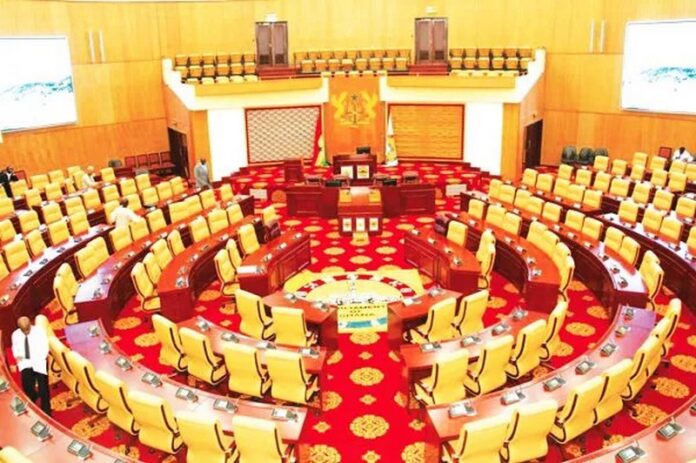In the lead-up to the 2024 elections, tensions reached a boiling point in Ghana’s Parliament, as political rivals from the New Patriotic Party (NPP) and National Democratic Congress (NDC) squared off over which party should occupy the majority and minority sides.
The battle intensified after the Speaker of Parliament declared four seats vacant, further complicating an already volatile situation.
The dispute over “who sits where” took center stage. This debate over parliamentary seating, often more symbolic than substantive, grew fierce and had a serious impact on the functioning of Parliament.
In fact, the issue was so contentious that it forced the Speaker of Parliament to adjourn sittings twice, as both parties remained at an impasse.
But why did this issue provoke such a dramatic response? The answer lies in the symbolism of parliamentary seating arrangements in Ghana.
Traditionally, the majority party occupies the right side of the Speaker, while the opposition, or minority, sits on the left. However, after the Speaker declared vacancies, both the NPP and NDC claimed the right to occupy the majority side.
The “Cursed Seats” Controversy
The situation escalated when Effutu MP and Leader of the NPP Caucus, Alexander Afenyo-Markin, publicly described the Minority seats as the “cursed seats” due to the perception that the NDC had occupied the Majority side despite being the Minority party in Parliament.
This remark sparked further debate, with both sides accusing each other of trying to usurp parliamentary conventions.
The NPP caucus argued that the NDC should no longer be allowed to sit in the majority section, while the NDC maintained that they had legitimate claims to their seats, especially given their numbers of MPs. The delay in seating meant that Parliament could not function as intended, and the national agenda was left in limbo.
Now that the 2024 elections are over and the dust has settled, the Speaker of Parliament has officially recalled Members of Parliament (MPs) to resume sitting on Monday. But the burning question remains: Who will sit on the “cursed seats”?
With the NPP and NDC each eager to claim the majority, the Speaker’s decision on the seating arrangements is likely to have profound political implications. The symbolism of the seats may be as important as the actual legislative work Parliament must now undertake.
Political analysts believe the outcome of the seating debate will set the tone for parliamentary relations in the coming months.
Will the NPP’s Alexander Afenyo-Markin, who referred to the minority seats as “cursed,” get his wish for a reorganization of Parliament’s seating? Or will the NDC’s claim to the majority position stand firm?
In many ways, the debate over who sits where in Ghana’s Parliament represents a larger struggle for political control and influence.
While the symbolic power of the Majority and Minority sides is significant, the true test will be whether MPs will set aside party lines and work toward the common good of the nation.
As Parliament reconvenes next week, all eyes will be on the Speaker’s decision. Whether the NPP or NDC occupies the majority side, the hope is that the contentious “cursed seats” debate does not become an obstacle to the crucial legislative work that the nation desperately needs.
But the big question now is: Who will take their place on the “cursed seats”? We’ll have to wait until Monday to see how the post-election showdown unfolds in Ghana’s Parliament.
About the author: Kodwo Mensah Aboroampa is a journalist with Multimedia Group Limited, an education enthusiast, and a development communication advocate.

